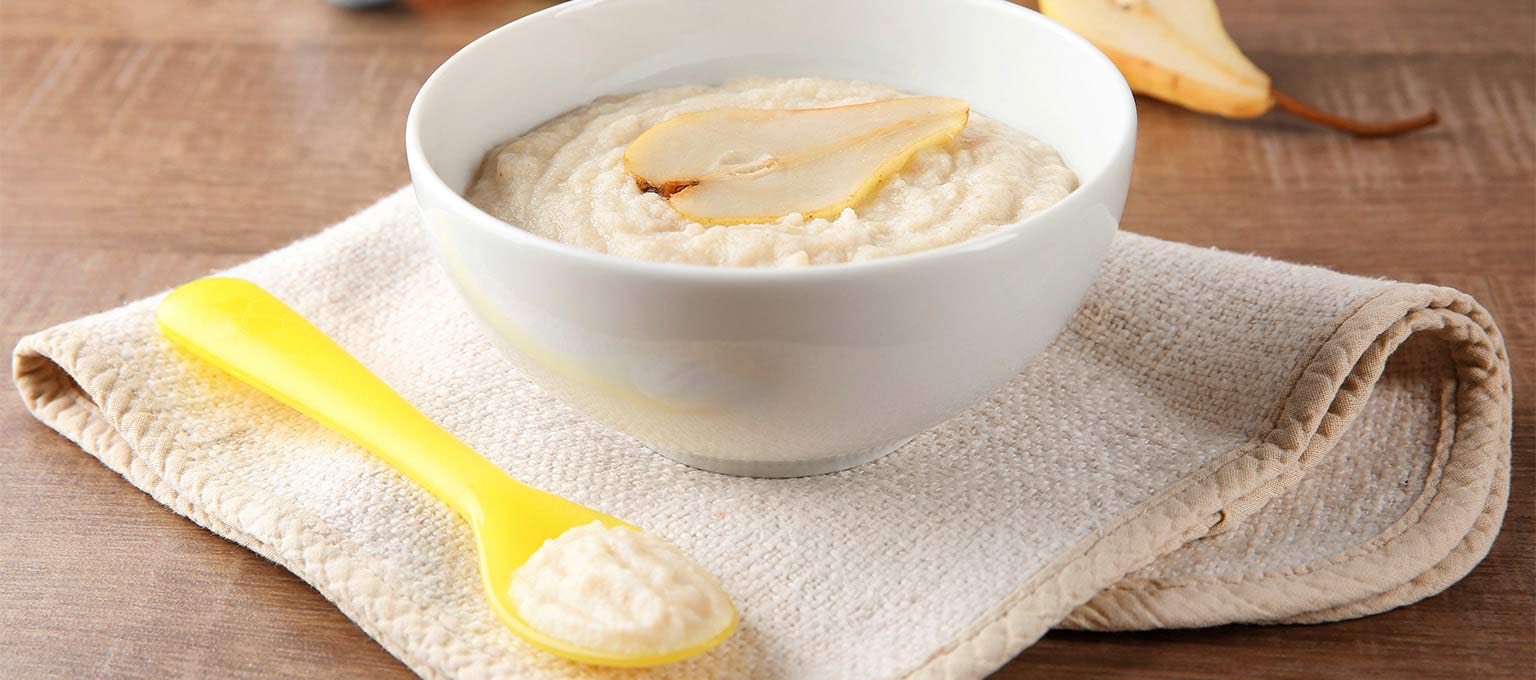It’s fun to see your baby move from liquids to foods that have more flavor and grit. Not only do you get to see the funny expressions on their faces, but you also get to give them solid nutrition as in the case of rice cereal.
For many babies, rice cereals are the first main food source – they are easy to digest, gluten-free, and seldom cause allergic reactions or intolerances. Due to a number of factors, some babies may gain from an early introduction to solid food.
Rice cereal is sometimes added to thicken breast milk, in these situations it is drunk through a bottle with a widened nipple hole.

When to Start with Rice Cereal
Unless your pediatrician states otherwise, do not start solid foods until your baby is at least four to six months old.
This is the period when the digestive system of a baby is fully developed to tolerate solids. Up next we’re going to tell you the benefits of rice cereals for babies.
When Can Babies Have Rice Cereal?
After they are six months old, babies can have rice cereal, which is also the suggested starting age for solid foods.
Rice cereals are the ideal first meal for the baby as, compared to other grains, they are less likely to cause an allergic response. Starting the baby’s solid food diet with rice cereal has certain health benefits.
Treating GERD
The formula for babies susceptible to colic or gastrointestinal reflux disease (GERD) may be thickened using rice cereal. Babies with GERD appear to spit up uncontrollably, but rice cereal can help.
The added weight of the rice cereal can make these babies keep their formula down. With rice cereal already included, there are some formula goods that can be used for this purpose. Breast milk, if first pumped, can also be thickened with cereal.
Good for Overall Health
A great source of calcium and magnesium is rice. For bone health, both are vital. An alternative source of calcium for the baby could be daily amounts of rice cereal, in addition to breast milk.
Rice also contains small amounts of micronutrients, like zinc, copper, and selenium. These micronutrients play an important role in keeping the body’s various functions working properly.
Helping with Sleep
To help babies sleep well, mothers are often encouraged to try formula or breast milk thickened with rice cereal. There is no data to confirm this theory, nor has it been unequivocally disproved.
Some pediatricians regard this advice as an old wives’ tale, while other pediatricians, especially with babies who also show any signs of GERD, are open to trying the approach.

Increasing Calorie Intake
Thickened formula or breast milk with rice cereal has a denser calorie content than formula or breast milk alone.
This suggests that for babies who may still be under six months, but whose appetite appears to surpass a liquid diet alone, it is more appropriate food to give.
With the rice-cereal-enhanced mixture, your baby can fulfill its caloric needs per meal more quickly.
The baby could be ready for more calories if she has doubled her birth weight, weighs more than 15 lbs., or feeds more than eight or ten times a day.
How to Introduce Rice Cereal to Your Baby
Below are a few tricks to get the baby used to the taste of rice cereal.
Mix Fruits and Vegetables
The rice cereal can be paired with a tablespoon of pureed vegetables or fruits. Adding the favorite vegetable or fruit puree of your baby’s liking to the rice cereal will make them like it more.
Explore Food Ideas For Toddlers
You have many alternatives available if you have introduced rice cereal late and in toddlerhood. For flavor, you might try adding honey and cow’s milk to the rice cereal.
Rice cereal may also be an option for dessert. Bear in mind that children under the age of 12 months should not be given honey and cow’s milk.

Final Words
There are reasons why rice cereal is so widely known. It is easy to digest, does not cause an allergic reaction,and is well tolerated by babies.
Figuring out when your baby can eat solid food is always an adventure. You can consult your pediatrician and also watch out for your baby’s cues to understand when they are ready.







